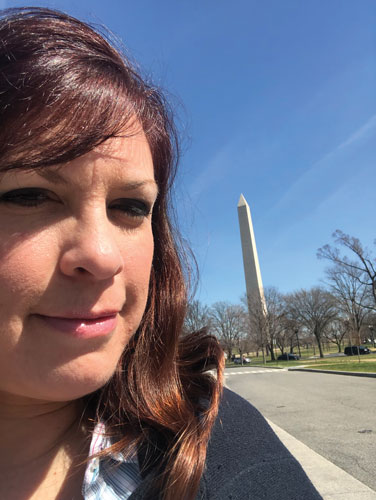10/1/2020
Homeland Security Department Extends H-2A Flexibility
Jennifer Zurko

The Department of Homeland Security has partially extended, through 2023, some temporary provisions first announced in April to make it easier for agricultural workers on temporary H-2A visas to transfer to new employers. Amendments to the seasonal agricultural guest worker visa program that gives employers flexibility in hiring workers will extend through 2023 under a new temporary final rule.
Through temporary final rule, the Department of Homeland Security is extending a provision to continue to allow H-2A workers to transfer to a new employer with a valid temporary labor certification, and to begin work immediately after U.S. Citizenship and Immigration Services (USCIS) receives the transfer petition. Previously, such workers could not begin work with a new employer until the transfer petition was approved.
DHS stated that extension of the temporary provisions was necessary because of “continued disruptions and uncertainty to the U.S. food agriculture sector” for the summer and fall agricultural seasons caused by the corona-virus pandemic. However, the benefit of this flexibility is likely to be seriously undermined by the recent substantial increase in petition filing fees for named beneficiaries.
H-2A visa workers are now estimated to comprise about 10% of the agricultural workforce. In 2019, the U.S. Department of Labor certified almost 260,000 farm employment opportunities to be filled with an H-2A worker.
—Craig Regelbrugge, VP of Government Relations & Research, AmericanHort
New H-2B Guidance Expands Options for Landscape Firms
The U.S. Department of State issued an update in mid-August providing what appears to be more generous guidance under President Trump’s Proclamation suspending entry into the U.S. (through December 31) of certain guestworker visas, including H-2B visas. The new guidance offers some options for arguing an H-2B guest worker is exempt under the “national interest” exception, as it allows for travel necessary to facilitate the immediate and continued U.S. economic recovery. Final determinations about H-2B visa eligibility will be made at the time of visa interview.
Under this guidance, it’s important to note H-2B applicants must have two of the three following indicators:
• The H-2B applicant was previously employed and trained by the petitioning U.S. employer for whom the applicant must have previously worked under two or more H-2B (named or unnamed) petitions.
• The H-2B applicant is traveling based on a temporary labor certification, which was approved by the U.S. Department of Labor (DOL) during or after July 2020. If DOL-approved before July 2020, this indicator is met only if the consular officer can determine from the visa application the continuing need of petitioned workers with the U.S. employer.
• Denial of the H-2B visa pursuant to Presidential Proclamation 10052 will cause financial hardship to the U.S. employer (e.g., the employer's inability to meet financial or contractual obligations; the employer's inability to continue its business; or a delay or other obstacle to the employer's ability to return to pre-COVID-19 level of operations).
You may view the entire U.S. Department of State’s guidance at travel.state.gov.
—Ben Bolusky, CEO, The Florida Nursery, Growers & Landscape Association
AmericanHort’s Labor Survey Results
In late July, the AmericanHort advocacy team asked its members who used foreign labor and educational visa programs to provide more specific information on their experiences with those programs. Members from across the nation graciously provided a few minutes of their time to give valuable insight.
Among employers who use these programs:
• Not surprisingly, the H-2A (Temporary Agricultural Worker Visa) is by far the most used foreign labor program
• About half of employers used a third party for recruitment abroad
• Most employers employed foreign workers directly and not through a third party H-2A labor contractor
Other visa programs used were:
• H-2B (Temporary Non-Agricultural Worker)
• J-1 (Exchange Visitors)
• TN (NAFTA Professionals)
• H-1B (Specialty Occupations)
• E-2 (Treaty Investor)
More quick-issue surveys to gain more insight into members’ experiences with federal policy issues are planned for the future. The surveys help AmericanHort provide Congress and the Administration with grassroots perspectives and rationale for why our industry’s requested policy changes are needed. Stay tuned for more.
—AmericanHort
Another Change in Leadership at Trucking Agency
Jim Mullen, Acting Administrator of the Federal Motor Carrier Safety Administration (FMCSA), recently left his position. Mullen was in his position for less than a year and follows the departure of administrator Ray Martinez in October of 2019. Former FMCSA Senior Advisor and Director of Government Affairs, Wiley Deck, is now tasked to run the agency.
AmericanHort has been working to see nursery and greenhouse horticulture clearly defined as agriculture. We’re awaiting the release of a proposed rule on the agricultural commodity definition as it pertains to trucking. It was expected that the rule would be released in the first half of 2020, but issues associated with the COVID-19 pandemic took precedence, delaying the release. Leadership changes could potentially prolong this delay, but we remain hopeful that a proposed rule will be issued before the end of 2020.
—Tal Coley, Director of Government Affairs, AmericanHort